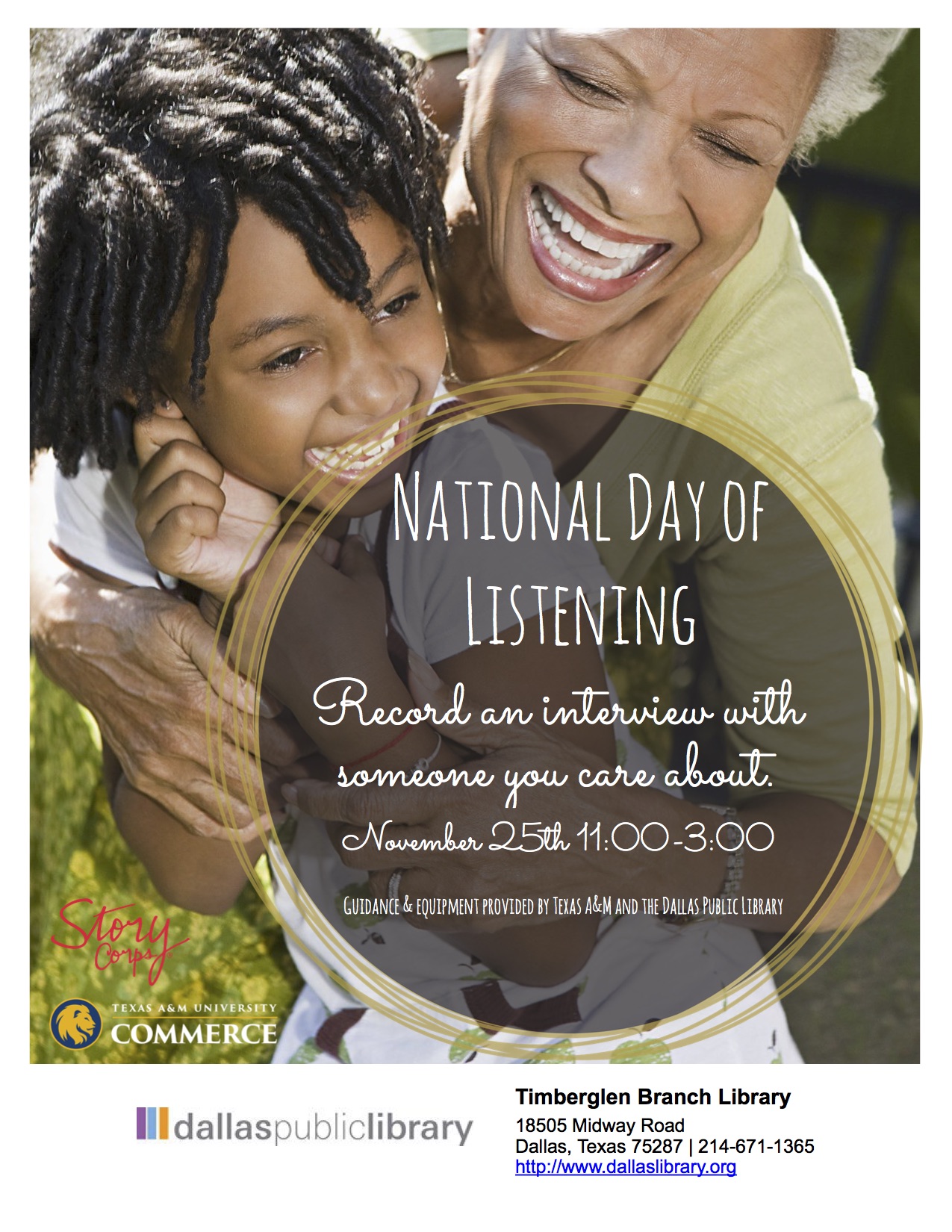Together with the Dallas Public Library and the Dallas Council of Senior Affairs, Sigma Tau Delta at Texas A&M-Commerce is co-hosting a National Day of Listening storytelling event.
 We need volunteers to help facilitate hour-long sessions in which older community members are interviewed by friends and loved ones to capture and preserve their stories. This event is part of Storycorps’ National Day of Listening, which encourages and supports people to record their life stories the Saturday after Thanksgiving. Thanksgiving provides many friends and loved ones an opportunity come together and share stories about themselves and their lives. We want to help preserve stories like these!
We need volunteers to help facilitate hour-long sessions in which older community members are interviewed by friends and loved ones to capture and preserve their stories. This event is part of Storycorps’ National Day of Listening, which encourages and supports people to record their life stories the Saturday after Thanksgiving. Thanksgiving provides many friends and loved ones an opportunity come together and share stories about themselves and their lives. We want to help preserve stories like these!
What is Storycorps?
What will volunteers be doing?
Most of these storytelling events will be guided by the Storycorps app, which helps anyone conduct and record a productive, 40-minute interview by providing interview questions, prompts to record, and an opportunity to publish their stories and archive them at the Library of Congress.
- Download the Storycorps app (Interview your family and loved ones this Thanksgiving!)
- Video Tutorial: Storycorps app [2:30]
- Five Steps to Help You Get Started [pdf]
- “10 Conversation Tips for Your Storycorps App Interview” [pdf]
Most will come with a friend or a loved one, who will be conducting the actual interview. They may need: (a) help getting started [these questions are terrific prompts!); (b) help with the Storycorps app (see “Five Steps to Help You Get Started” and video tutorial above for guidance; it’s easy!); additional troubleshooting support.
Some may come alone. In those cases, we’d need you to serve as the interviewer, using the same extensive support Storycorps provides, both in the above documents and the Storycorps app itself.
Plan to join us for all or part of these event?
Terrific! Please let me know via email at Shannon.Carter@tamuc.edu and/or via Facebook so we’ll know who to expect and prepare accordingly.
